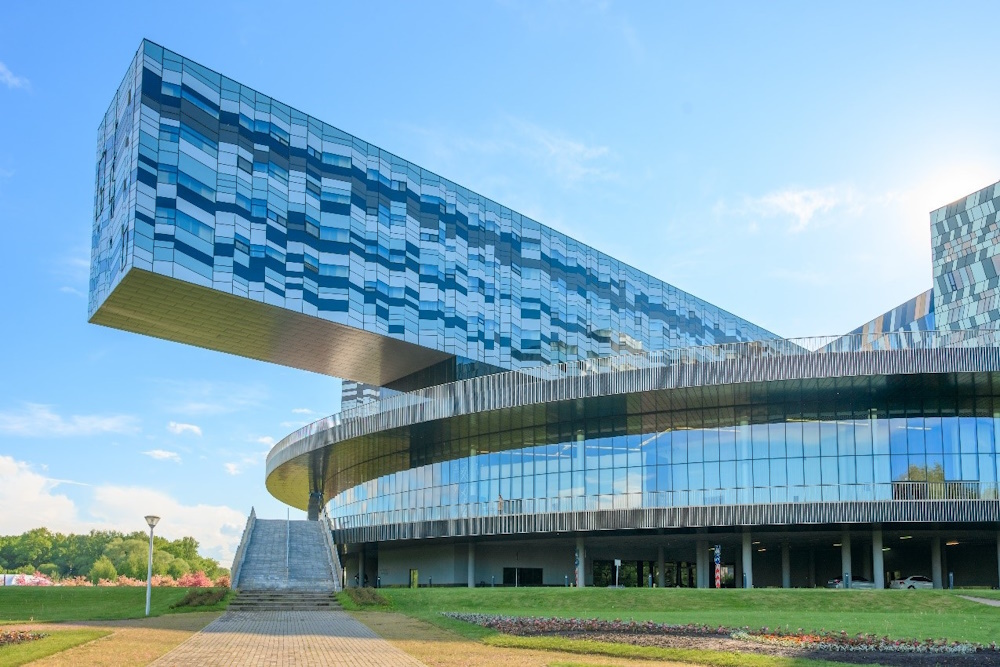The Moscow-based SKOLKOVO School of Management, as the largest private business school in Russia, is committed to expanding the cooperative relations with South Korean educational institutes to learn from its strength in technology, innovation and education.
According to Alexander Kim, the dean of the SKOLKOVO School of Management, to achieve this goal, they are striving to promote academic cooperation, joint research projects, and knowledge sharing with South Korean institutions, and looking for opportunities to facilitate student exchange programs that would allow students to study abroad to gain international experience and broaden their perspectives.
“In the modern world, no country can grow without looking at the experience of the surrounding world. Studying the practices of other countries helps absorb strategies that can be adapted and applied locally to improve education, economy, healthcare, and many other areas,” said Mr. Kim.
“In the modern world, no country can grow without looking at the experience of the surrounding world. Studying the practices of other countries helps absorb strategies that can be adapted and applied locally to improve education, economy, healthcare, and many other areas,”
Alexander Kim
Among various academic and professional fields in which the two countries can establish educational cooperation, Kim believes science and technology is where they both have strong capabilities and suggests joint research in medical sciences and healthcare innovation that can lead to advancements in healthcare delivery, disease prevention and medical technologies.
Besides, the cooperation in business education, entrepreneurship, finance and economics can also promote skill development and thus foster economic growth in both countries, he said.
In terms of student exchange programs, the SKOLKOVO School of Management is currently working with the Korea University Business School (KUBS), the pioneer of business education in South Korea, on exchanging MBA students and facilitating customized educational programs.
Kim pointed out that Russian educational resources can benefit South Korean students, since the educational institutions in Russia like SKOLKOVO School of Management offer unique programs in various fields that may interest South Korean students, providing them with diverse learning opportunities designed for businesses at various stages of development, from start-ups to established corporations expanding into global markets.
“SKOLKOVO School provides a range of educational programs built on the ‘learning by doing’ approach, incorporating theoretical learning, practical assignments, project work, and international modules,” he added.
In addition, SKOLKOVO School of Management is also seeking to create effective partnerships with other South Korean educational institutions, hoping for more connections and partnership.
According to Kim, South Korean students are offered several English-speaking programs, and one of them is SKOLKOVO MBA. The application process starts with a questionnaire and an essay, in which candidates are required to explain why they would like to consider this particular program, their expectations and goals, occupation and experience, and their potential to contribute to school group projects.
As the 2nd step, candidates need to take an English proficiency test and a TalentQ aptitude test, which consists of three parts: verbal, numerical and logical.
Moving on to the 3rd step, candidates need to solve a case and discuss it in a group, in order to have candidates assessed for their capabilities to cope with managerial tasks on their own and manifest themselves when working in a team.
The last step is an online interview for the school staff to assess candidates’ motivation to complete this one-and-half-year program and their plans to use the gained knowledge in practice, as well as if the program is truly applicable for their purposes. In any case, all the candidates would receive detailed feedback at the end.
Although the SKOLKOVO School of Management has no South Korean students now, Kim said that they are looking forward to enrolling some as a result from the closer relationships with South Korean educational institutions.


Comments